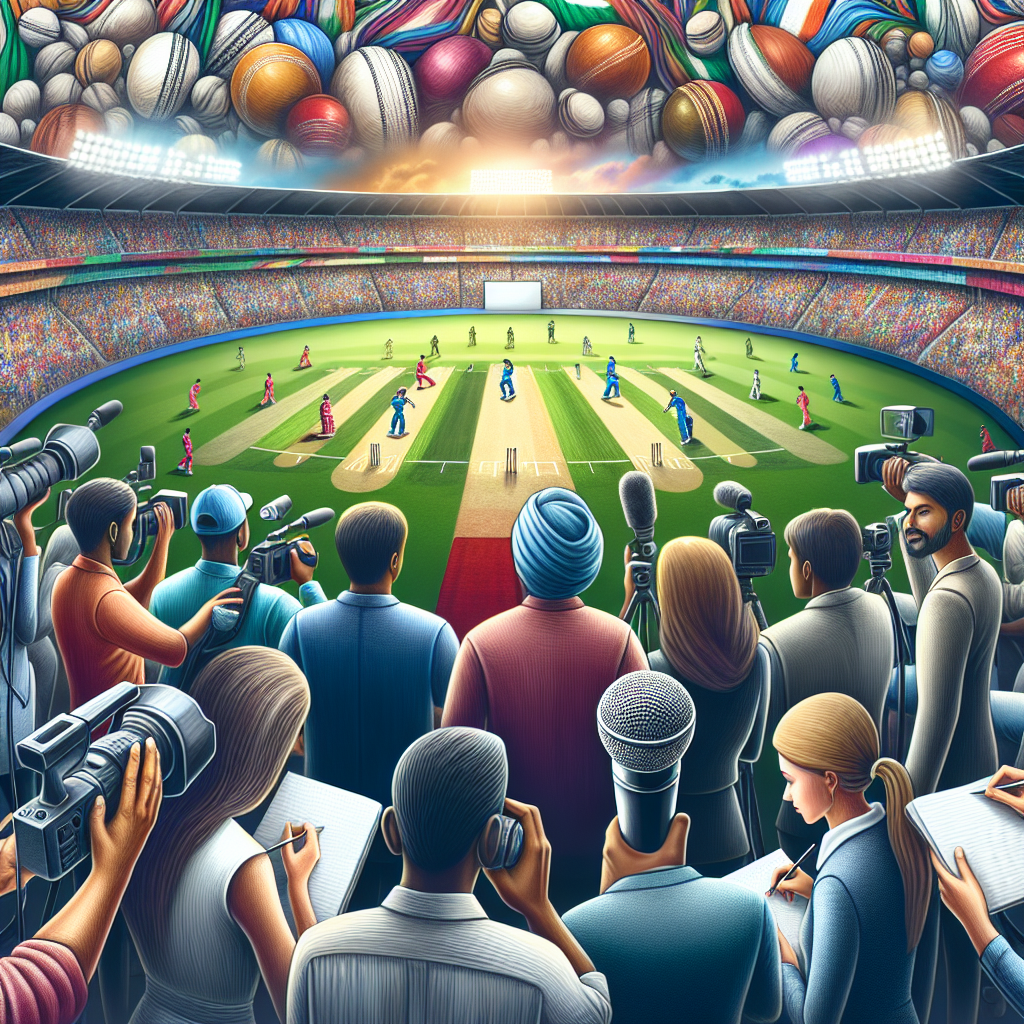Understanding ICC Media Rights: A Comprehensive Overview

The International Cricket Council (ICC) is the global governing body for cricket, responsible for organizing major international tournaments and ensuring the sport’s growth worldwide. One of the critical aspects of the ICC’s operations is the management of media rights, which significantly impacts the sport’s global reach and financial health. This article delves into the intricacies of ICC media rights, exploring their significance, evolution, and the challenges and opportunities they present.
The Importance of Media Rights in Cricket
Media rights are a crucial revenue stream for sports organizations, and the ICC is no exception. These rights allow broadcasters to televise and stream cricket matches, providing fans worldwide with access to live games and related content. The sale of media rights is a significant source of income for the ICC, enabling it to fund tournaments, support member nations, and invest in the sport’s development.
Revenue Generation
Media rights deals are often multi-billion-dollar agreements, reflecting the immense popularity of cricket globally. The revenue generated from these deals is vital for the ICC’s financial stability and its ability to promote cricket in emerging markets.
Global Reach and Fan Engagement
By partnering with broadcasters and digital platforms, the ICC can reach a vast audience, enhancing the sport’s visibility and popularity. This global reach is essential for engaging fans, attracting new followers, and maintaining cricket’s status as one of the world’s most popular sports.
The Evolution of ICC Media Rights
The landscape of media rights has evolved significantly over the years, influenced by technological advancements and changing consumer preferences. Understanding this evolution is crucial to appreciating the current state of ICC media rights.
Traditional Broadcast Deals
Historically, media rights were primarily sold to television broadcasters, who would air matches live on their networks. These deals were often region-specific, with different broadcasters securing rights for different parts of the world.
The Rise of Digital Platforms
With the advent of the internet and digital streaming services, the ICC has expanded its media rights strategy to include online platforms. This shift has allowed the ICC to reach younger audiences who prefer consuming content on digital devices.
Hybrid Models
Today, the ICC employs a hybrid model, combining traditional broadcast deals with digital streaming rights. This approach maximizes revenue potential and ensures that cricket is accessible to fans across various platforms.
Case Studies: Notable ICC Media Rights Deals
Examining specific media rights deals provides valuable insights into the ICC’s strategy and the broader trends in sports broadcasting.
Star India and ICC Partnership
In 2014, Star India secured the global media rights for ICC events from 2015 to 2023 in a deal worth approximately $2 billion. This agreement covered major tournaments like the ICC Cricket World Cup, ICC T20 World Cup, and ICC Champions Trophy. Star India’s extensive reach in India, one of cricket’s largest markets, was a significant factor in this partnership.
Facebook’s Digital Rights Acquisition
In 2018, Facebook acquired the digital rights for ICC events in the Indian subcontinent for a reported $600 million. This deal marked a significant shift towards digital platforms, highlighting the growing importance of online streaming in sports broadcasting.
Challenges in Managing ICC Media Rights
While media rights are a lucrative revenue source, managing them presents several challenges that the ICC must navigate.
Balancing Traditional and Digital Platforms
The ICC must strike a balance between traditional broadcasters and digital platforms to maximize reach and revenue. This requires careful negotiation and strategic partnerships to ensure that cricket remains accessible to diverse audiences.
Addressing Piracy Concerns
Piracy is a significant issue in sports broadcasting, with unauthorized streams impacting revenue and viewership. The ICC must work with broadcasters and digital platforms to implement robust anti-piracy measures and protect its media rights.
Adapting to Changing Consumer Preferences
As consumer preferences evolve, the ICC must adapt its media rights strategy to meet the demands of modern audiences. This includes exploring new technologies like virtual reality and augmented reality to enhance the viewing experience.
Opportunities for Growth and Innovation
Despite the challenges, the ICC’s media rights present numerous opportunities for growth and innovation in cricket broadcasting.
Expanding into New Markets
The ICC can leverage media rights to expand cricket’s reach into new markets, particularly in regions where the sport is not yet widely popular. By partnering with local broadcasters and digital platforms, the ICC can introduce cricket to new audiences and foster its growth globally.
Enhancing Fan Engagement
Innovative broadcasting techniques, such as interactive features and personalized content, can enhance fan engagement and create a more immersive viewing experience. The ICC can explore these opportunities to attract and retain fans.
Leveraging Data and Analytics
Data and analytics play a crucial role in modern sports broadcasting. By leveraging data, the ICC can gain insights into viewer behavior, optimize content delivery, and tailor its media rights strategy to meet audience needs.
Conclusion: The Future of ICC Media Rights
ICC media rights are a vital component of cricket’s global ecosystem, driving revenue, expanding reach, and engaging fans worldwide. As the landscape of sports broadcasting continues to evolve, the ICC must navigate challenges and seize opportunities to ensure the sport’s continued growth and success.
By embracing digital platforms, addressing piracy concerns, and exploring innovative broadcasting techniques, the ICC can enhance its media rights strategy and secure cricket’s place as a leading global sport. As we look to the future, the ICC’s ability to adapt and innovate will be crucial in shaping the next chapter of cricket broadcasting.



